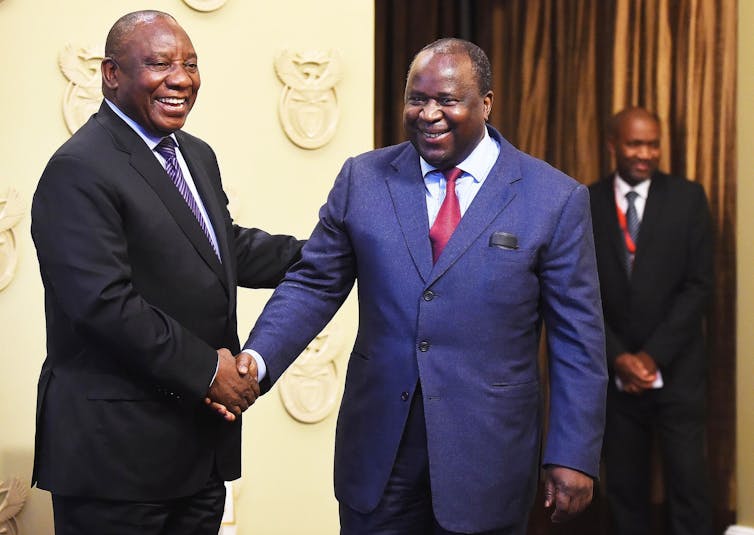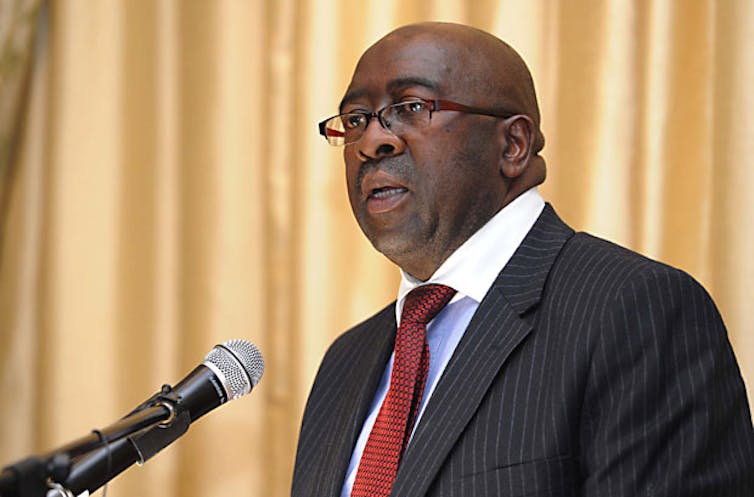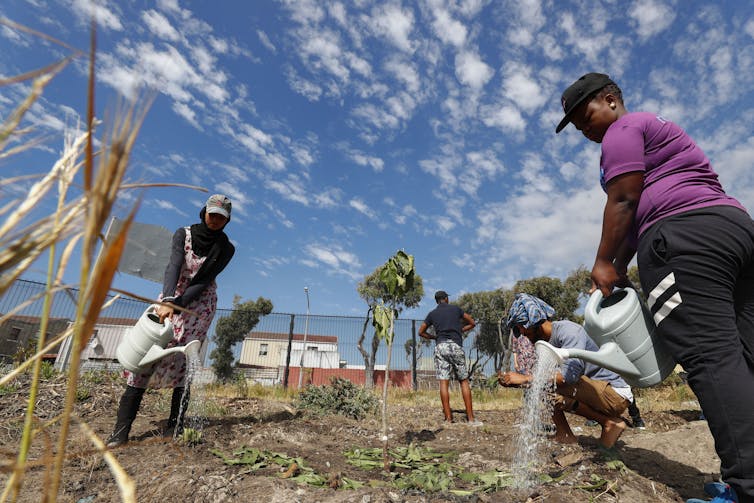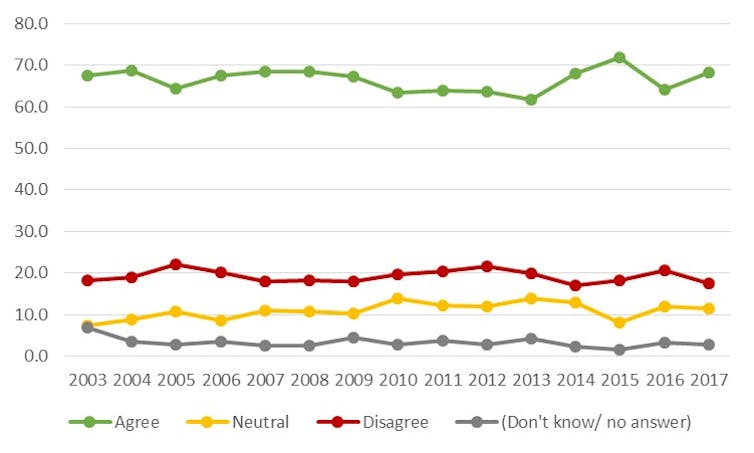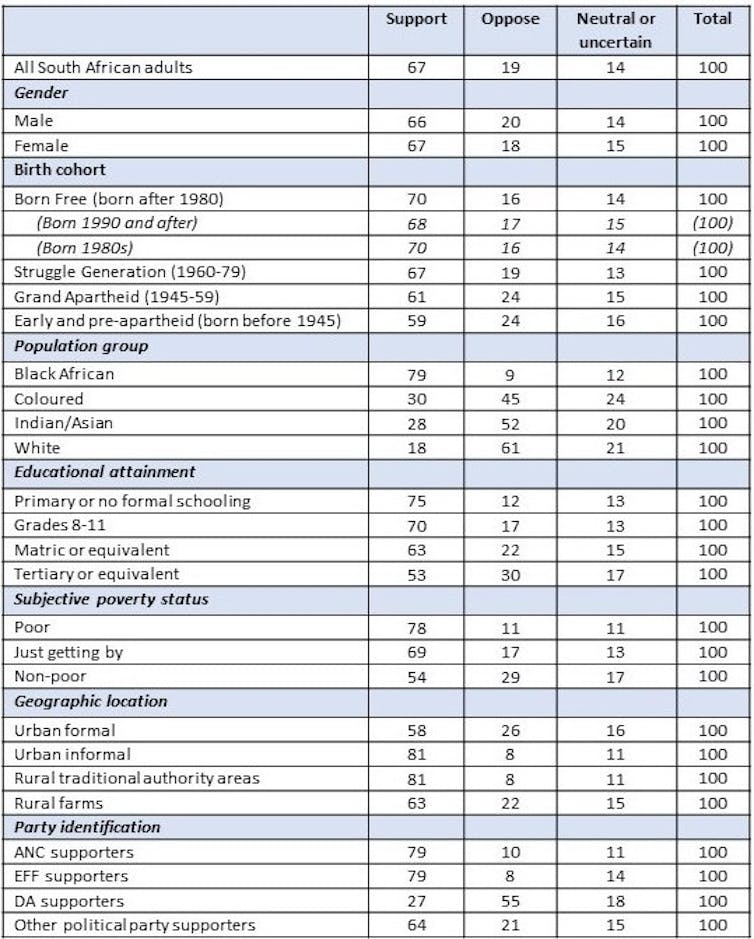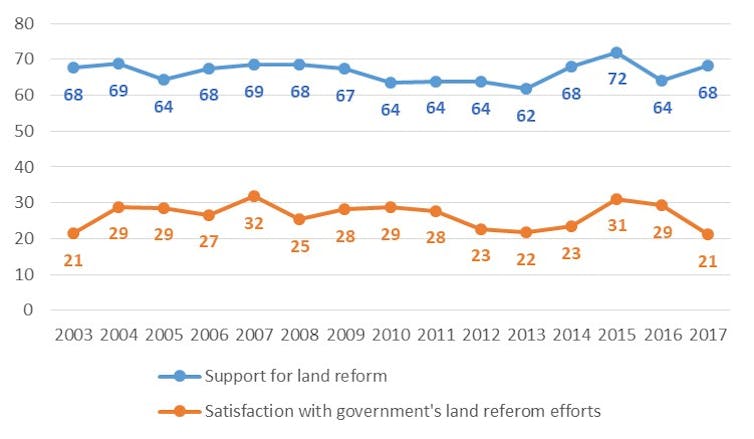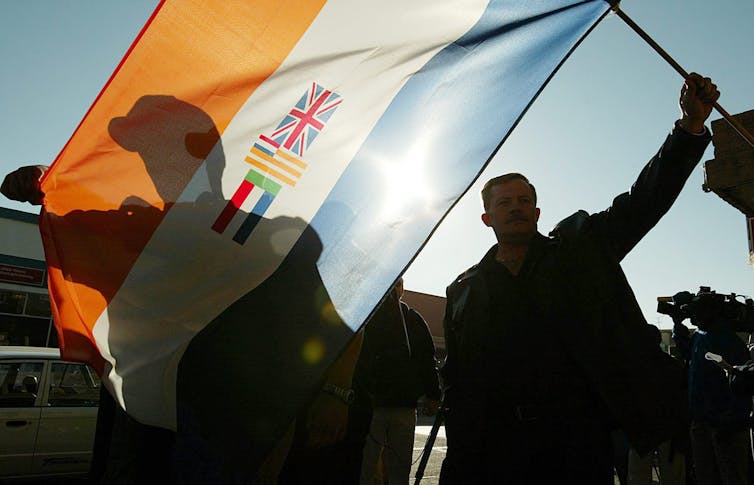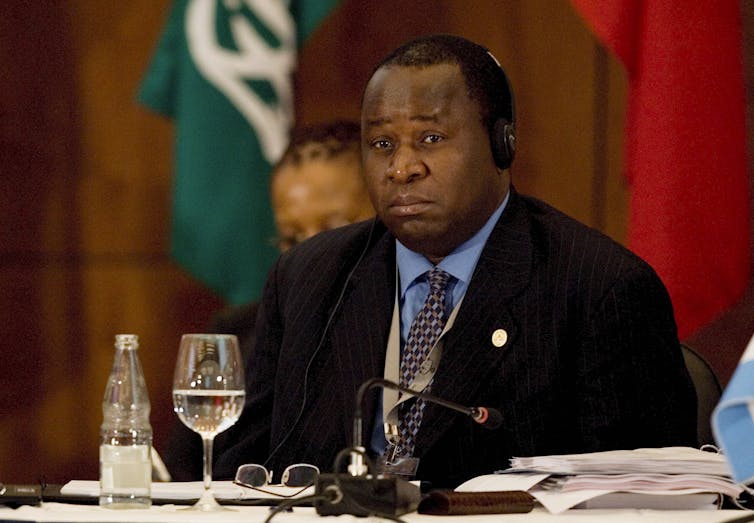
South Africa’s Finance Minister Tito Mboweni must answer several big questions about the country’s economic plans.
Sebastiao Moreira
South Africa’s newly inducted finance minister, Tito Mboweni, will this week deliver the country’s 2018 medium-term budget policy statement setting out the government’s fiscal policy and projections for the next three years.
The medium-term budget comes at a time when South Africa’s economy is on a downward trajectory. President Cyril Ramaphosa’s administration is trying to deal with this in several ways. One is a “stimulus plan” to promote economic growth. Another was a recently convened “jobs summit” to identify ways of addressing the country’s high rates of unemployment.
In addition, commissions of inquiry have been instituted, or are underway, into the South African Revenue Service and the broader problems of state institutions that have been undermined and compromised by corruption. The Public Investment Corporation, which manages public sector pensions and is South Africa’s biggest fund manager, is also being investigated for alleged corruption and mismanagement.
Numerous other matters relating to critical sectors such as water, communications, transport and electricity are before various parliamentary committees.
Against this backdrop, Mboweni’s speech will reflect a harsh reality. The damage done during the preceding decade under president Jacob Zuma will have a negative effect on public finances and the economy for some time to come. Economic growth has been repeatedly below population growth for some time. The causes of this are such that the trajectory cannot be rapidly altered.
The “new dawn” promised by Ramaphosa’s administration will break slowly for South Africa’s public finances.
Dealing with the past
A year ago, when Zuma was still running the country, the destructive effects of his presidency were being keenly felt in the country’s budgeting process.
In the 2017 medium-term budget policy statement, economic growth and tax collection were forecast to be significantly lower than expected. As a result, national debt levels were forecast to rise rapidly. Worse, no concrete action was proposed to address the likely escalation of national debt beyond what had previously been planned.
Unsurprisingly, the country’s local currency sovereign debt ratings were subsequently downgraded to “junk” – that is, sub-investment grade – by two of the three major ratings agencies. That followed downgrades of the foreign currency rating earlier in 2017.
Shortly after the budget was delivered, the senior official in the National Treasury responsible for preparing the budget resigned. Reports suggested this was due to unprocedural and irresponsible efforts to fund a populist allocation to higher education.
This appeared to be confirmed when Zuma, in a shock mid-December press statement shortly before the governing African National Congress’s elective conference, announced “free higher education”.
Despite the dubious circumstances and the country’s serious fiscal situation, the 2018 Budget announced the intention to allocate an additional R12.4 billion (about US$863m) in 2018/19, rising to R24.3 billion (about US$1.7bn) in 2020/21.
Among the major proposals to fund this new outlay, while still trying to stabilise national debt levels, were a controversial 1% increase in value-added tax. Significant cuts were also proposed to planned expenditure in other areas.
But the government has never actually produced a detailed costing of the “free higher education” plan. Worryingly, the 2018 Budget referred to these costs as “uncertain”. The Treasury has now had enough time to properly address such uncertainty; that ought to be reflected in Mboweni’s medium-term expenditure proposals.
As well as dealing with this recent history, Mboweni will need to provide details of the plans referred to by Ramaphosa to boost the economy in the coming years.
The medium-term budget policy statement should reflect the fiscal details of the commitments in Ramaphosa’s stimulus plan. We already know that the term “stimulus plan” is somewhat misleading. It actually involves reallocation of resources, not an increase.
Mboweni must outline where the funds will be redirected to, and – as important – where they’re going to be taken from. One possibility in the medium-term is cutting back on the bloated bureaucracy that was introduced under Zuma.
Seeking sustainability
The broad question Mboweni will need to answer is how the government is going to maintain its plan for sustainable public finances in the face of even weaker economic growth and possibly a further decline in the performance of the South African revenue service in collecting taxes.
Some supposedly “radical” economic commentators argue that the government should spend more to stimulate the economy, regardless of debt levels. But there is little evidence to suggest this would work given the rather dire state of public sector institutions.
And a significant increase in debt without a large increase in economic growth could lead to a crisis.
A major concern is that recent budgets have maintained expenditure constraints by capping or reducing public sector employment. This is a strategy which could reasonably be referred to as “austerity by stealth”. The stimulus plan commits to filling 2,200 critical posts in the healthcare system. But it remains unclear how the impact of the government’s fiscal stabilisation is being passed on to public sector employment. It’s also not clear how that could be affecting service delivery.
There is a strong argument to be made for maintaining or even increasing public sector employment. This could be achieved by removing overpaid and ineffective senior managers and redirecting those funds to filling, or creating, posts for core front line staff.
Risk factors
Another area to watch is how Mboweni deals with the issue of state-owned entities. These were often the primary targets of efforts to loot the state under the Zuma presidency. And many, from South African Airways to the national power utility Eskom, pose a serious risk to public finances.
There are two aspects to the risk: the need for cash injections which come directly from the government budget, and the need for state loan guarantees which increase the broader precariousness of public finances. The medium-term budget policy Statement should provide a sober assessment of those risks and how they are going to be managed.
Seán Mfundza Muller, Senior Lecturer in Economics and Research Associate at the Public and Environmental Economics Research Centre (PEERC), University of Johannesburg
This article is republished from The Conversation under a Creative Commons license.
